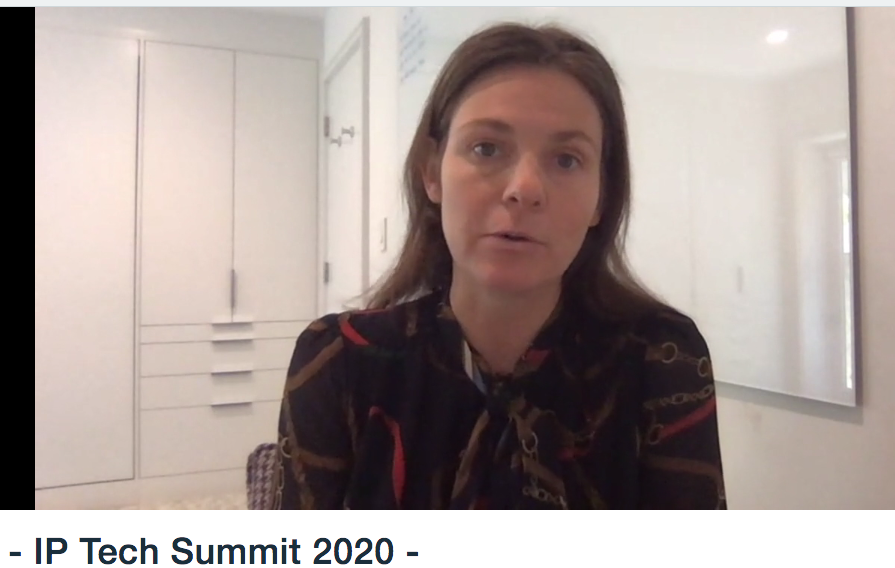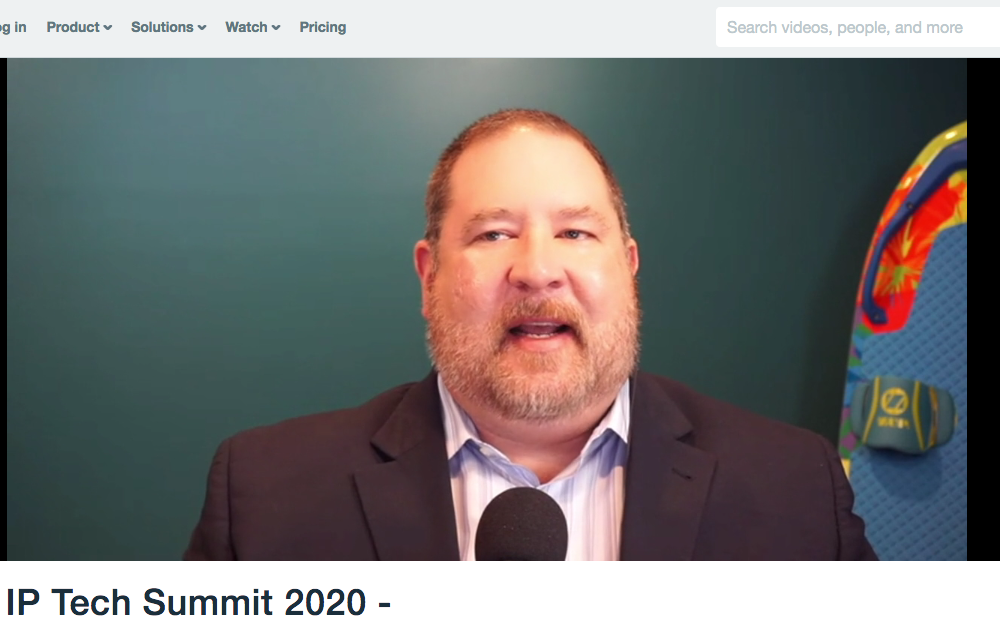“The danger is, the more laws you pass, the harder it is for the next entrepreneur who has a good idea to make it come to life if there are 200 different sets of laws you have to comply with around the world.”

Michelle Zatlyn
The IP Tech Summit, researched and produced by Premier Cercle, took place virtually this year, on December 3-4, and focused on new intellectual property strategies for open innovation and digital transformation. As part of the summit, IPWatchdog Founder and CEO Gene Quinn conducted a Fireside Chat with Cloudflare Co-Founder and COO, Michelle Zatlyn, who said that we are presently in a critical phase of the internet’s development and have an opportunity to redefine it to make it work. But—if we act too quickly—we could potentially go backwards.
Technology Harnessed for Good
Zatlyn co-founded website infrastructure and security company Cloudflare with Matthew Prince in 2009 and, just over 10 years later, the company services 27 million internet properties around the world and collectively helps to stop 76 billion cyber-attacks daily. “This is the power of technology harnessed for good,” Zatlyn told Quinn. But other technology companies have “done the whole industry a disservice” by taking advantage of the lack of legal regimes around the internet and generally being bad actors with respect to topics like user data. As a result, 66% of countries are having conversations about data privacy right now, said Zatlyn, and there is a chance for things to go very right or very wrong.
“We need to bring multiple stakeholders to the table,” Zatlyn explained. “Business leaders, academics, technologists and researchers need to come together to figure out a path forward, because there are some things that aren’t working very well. The positive side of me says “great” – there’s a place to redefine this and make it really work. The cautious side of me says we could really go backwards in terms of productivity and how we connect as people and societies if we don’t bring all voices to the table – we shouldn’t act too quickly.”
Of course, Cloudflare has a very particular interest in keeping laws and regulations around the internet to a minimum, but Zatlyn argued that too many new laws to protect user data could make it harder for the next Cloudflare. “The danger is, the more laws you pass, the harder it is for the next entrepreneur who has a good idea to make it come to life, if there are 200 different sets of laws you have to comply with around the world.”
Patents, Trolls and Portfolios
Zatlyn also touted Cloudflare’s broad patent portfolio and reliance on the IP system. This may surprise some because, as a frequent defendant in patent lawsuits, the company has contributed to the patent troll narrative. In November of last year, Cloudflare won a case against Blackbird Technologies in which the company proclaimed it had “stood up to a patent troll—and won!” Quinn took a closer look at that case here, but did not delve into the complex issues surrounding patent litigation and the patent troll narrative, which is largely a pejorative public relations characterization for patent owners.
 “Zatlyn, is not an IP professional,” Quinn explained. “She is an entrepreneur and business executive. It wouldn’t be appropriate to ask her nuanced questions related to patent policy, so I chose to focus our brief 20-minute conversation on the business and regulation of the Internet, incentivizing startups, and the role proprietary rights and open source played in Cloudflare’s development.”
“Zatlyn, is not an IP professional,” Quinn explained. “She is an entrepreneur and business executive. It wouldn’t be appropriate to ask her nuanced questions related to patent policy, so I chose to focus our brief 20-minute conversation on the business and regulation of the Internet, incentivizing startups, and the role proprietary rights and open source played in Cloudflare’s development.”
On the issue of proprietary rights, Zatlyn acknowledged that patents have indeed played an important role in the company’s success. “We’re inventing the future,” she said. “We built a way to stop 76 billion attacks daily through our technologists. We have a very broad patent portfolio. It’s been really important to use from when we were a young company. We’ve had to invent a lot of new things, so engineers want to come work for us. Having a well-defined patent system where, if you really truly invented something new, you can file for it, has been important to our success.”
At the same time, said Zatlyn, the company has contributed a lot to the open source community and feels it has maintained a “good balance” between the two spheres.
The Future of the Startup May be Local
As for the future, Quinn asked Zatlyn how she thinks the pandemic has changed things and whether it may inspire more startups to take root in their hometowns and countries, rather than fleeing for Silicon Valley like so many (including Cloudflare) have done in the past. “Even before the pandemic I used to say what the world really needs is a lot of local technology success stories,” Zatlyn said.
“Every country around the world wants that. If more entrepreneurs felt like they could build great, successful companies where they were, we actually would be in a better place as an industry. The pandemic might be changing that. At the end of the day it’s about solving a problem with a great team, and if you want to stay where you are, you should. The pandemic is showing people they can stay home.”

![[IPWatchdog Logo]](https://ipwatchdog.com/wp-content/themes/IPWatchdog%20-%202023/assets/images/temp/logo-small@2x.png)

![[[Advertisement]]](https://ipwatchdog.com/wp-content/uploads/2024/04/Patent-Litigation-2024-banner-938x313-1.jpeg)
![[Advertisement]](https://ipwatchdog.com/wp-content/uploads/2024/04/Artificial-Intelligence-2024-REPLAY-sidebar-700x500-corrected.jpg)
![[Advertisement]](https://ipwatchdog.com/wp-content/uploads/2024/04/UnitedLex-May-2-2024-sidebar-700x500-1.jpg)
![[Advertisement]](https://ipwatchdog.com/wp-content/uploads/2024/04/Patent-Litigation-Masters-2024-sidebar-700x500-1.jpg)

![[Advertisement]](https://ipwatchdog.com/wp-content/uploads/2021/12/WEBINAR-336-x-280-px.png)
![[Advertisement]](https://ipwatchdog.com/wp-content/uploads/2021/12/2021-Patent-Practice-on-Demand-recorded-Feb-2021-336-x-280.jpg)
![[Advertisement]](https://ipwatchdog.com/wp-content/uploads/2021/12/Ad-4-The-Invent-Patent-System™.png)






Join the Discussion
No comments yet.